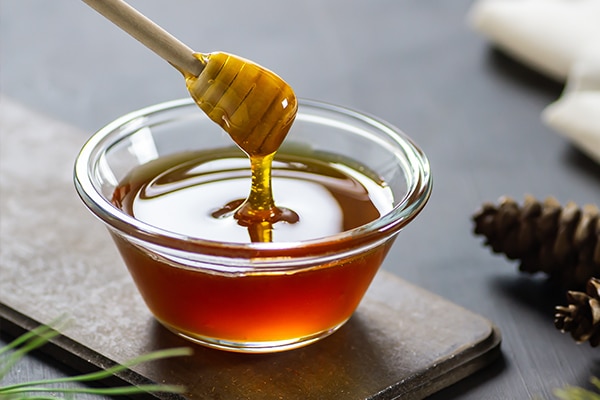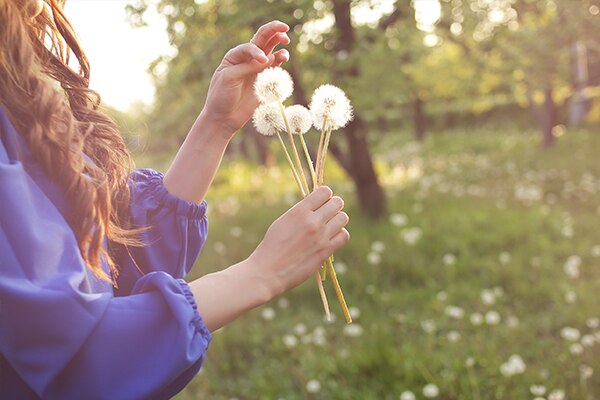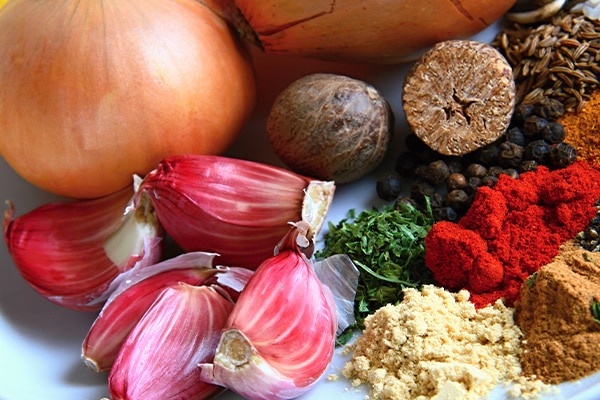The best hay fever remedies and relief

Hay fever can be debilitating, especially during the peak summer months. But what can you do to stop it ruining your summer? What hay fever remedies are there?
Itchy eyes, persistent sneezing, and a blocked nose – there’s nothing fun about hay fever. Especially if you love spending time outdoors.
Can diet changes make a difference to hay fever symptoms? Do alternative inventions for hay fever actually work? What immune system-supporting supplements could help your body cope better with allergies?
In this article, we’ll explore how alternative support for hay fever could work alongside your usual antihistamine to relieve seasonal sniffles.
How to manage hay fever
“Avoiding pollen and taking away the trigger of your allergy is the most obvious way to reduce hay fever symptoms. But if you enjoy the outdoors this may seem too big a compromise,” says Emily Rollason, Holland & Barrett’s Senior Nutritionist.
“Hay fever medicines, nasal sprays, and eye drops can be effective in treating allergy symptoms. But there are sources of natural hay fever support that could also help you to navigate your symptoms.”
For example, what we eat can exacerbate the inflammation triggered by an allergy or increase the amount of histamine in our system.1
“The jury's out on whether natural support for hay fever actually makes a difference. A lot of evidence is anecdotal rather than scientifically proven,” Emily adds.
“For example, a daily spoonful of local honey is something many hay fever sufferers swear by. But there’s no robust clinical evidence to support its use as an allergy treatment.”
Exploring alternative interventions for hay fever
Sporadic sneezing fits. Watery eyes. An annoying tickle in your throat. Sound familiar? Then you’re probably preparing to cope with the seasonal inconvenience of hay fever symptoms.2
As well as herbal hay fever tablets, there are also some dietary changes and allergy-friendly habits you can adopt.3 In particular, plant-based diets have been found to help and are a natural hay fever remedy.3 These can help to manage and stabilise the uncomfortable side effects of an allergy to pollen.
Are you ready to give a few different interventions for hay fever a try? First, let’s understand a bit more about what’s behind your symptoms and what causes hay fever to flare up when the weather gets warmer.

How to cure hay fever permanently
Avoiding pollen
As with any allergy, the most obvious way to manage hay fever is to avoid contact with the allergen, in this case, pollen.
“The more contact you have with pollen, the more histamine is released by your body,” says Emily. “Therefore, limiting contact with pollen can help to reduce the severity and duration of symptoms."
"For example, if you know the pollen count is going to be high next week, start using your treatments or support for hay fever early. This builds up your resistance to the rise in pollen in the air."
A few hay fever-friendly habits that may reduce your exposure to pollen include:
- Keeping an eye on the pollen forecast: When it’s high, avoid spending long periods on green and grassy areas that may aggravate your symptoms.
-
Understanding your personal pollen trigger : This can help you to predict when your symptoms are most likely to hit.
Tree pollen is typically high in March and April. Grass pollen reaches its peak in May to July.6 Weed pollen comes later in June to August.6 -
Not letting settled pollen linger : The NHS recommends changing and washing your clothes after a day outdoors to reduce the amount of pollen you bring back into your home.
They also suggest that a shower or bath before going to bed may help to remove pollen.7 - Keeping windows shut during the day: Particularly in your bedroom. This limits your exposure to pollen when inside and minimises symptoms disrupting your sleep.5
- Wearing protective clothing: Sunglasses and a wide-brimmed hat create a physical barrier. This keeps airborne pollen away from sensitive eyes.8
- Dotting a barrier balm around the nose: Dotting a barrier balm around the nose can trap pollen before it gets into the nasal passage.
How to reduce your child’s exposure to pollen
- Smear HayMax Kids Pollen Barrier inside their nostrils to reduce how much pollen they inhale.8
- To soothe their eyes, you can gently wipe them with cotton wool soaked in cold water.
- Keep your windows at home and in the car closed, especially at the worst times of the day (early morning and 5 pm – 7 pm).5
- Limit the amount of time they spend outside playing and try to entertain them indoors on days when the pollen count is high or it’s windy.5
- When they come inside, get them to change their clothes and wipe their face, hands and hair with a damp cloth.7
- Clothes should be dried inside on airers as pollen can stick to clothes that are dried outside on washing lines.7
- Give them wraparound sunglasses to wear to prevent pollen from going into their eyes.8
- Instead of going to the countryside for days out, opt for a visit to the coast, as pollen counts are lower.5
- If you have a dog or cat at home, try to brush them outside before they enter your home and wipe them down with a damp towel.
How to stop hay fever immediately
- Nasal rinse – One quick and effective thing you can do is to rinse your nose out with saline to remove the pollen and prevent hay fever symptoms.13
- Fast-acting antihistamines – Some antihistamines are incredibly fast-acting and start to work in just 15 minutes.
Conventional medication for hay fever
The first line of defence for many hay fever sufferers is a group of conventional hay fever treatments called antihistamines. They work by blocking the action of histamine. If you take these medications before contact with pollen, they can stop the release of histamine.9
If you take them afterwards, they can reduce the impact of histamine. This can lessen the severity of your symptoms.9 “There are also compounds found in certain foods that have potential antihistamine properties that may ease hay fever symptoms,” says Emily.
“So, if you’re unable or prefer not to take conventional hay fever medication for any reason, it’s worth looking into whether an alternative support for hay fever could work for you.”

Supplements that may aid hay fever symptoms
Quercetin
Quercetin is a “natural” chemical that has been found to play both antihistamine and powerful anti-inflammatory properties, making it a powerful natural hay fever remedy. Quercetin is commonly found in green leafy vegetables, citrus fruits, red grapes and berries.10 It’s got some great nutritional credentials when it comes to dealing with hay fever symptoms.
One study from 2020 found that quercetin was very effective at reducing the symptoms of hay fever, and another found that quercetin stopped the symptoms entirely.11,12 However, this study was undertaken on 35 rats and tests on humans are yet to take place.12
For those looking to add quercetin to their diets during the summer months, know that it also comes as a food supplement which might make it easier.
Nutrition to help relieve hay fever
What you eat may make a difference in the intensity of your hay fever symptoms. It's believed that some foods might exacerbate allergic reactions.3
“Take time to identify any foods that could be irritating your immune system and increasing histamine levels and congestion,” says Emily.
“But remember, although nutrition can play a role in managing the severity of hay fever symptoms, the results won’t be immediate. If you can, it pays to be prepared and to start introducing allergy-supporting ingredients into your diet before the pollen count starts to rise.”

The final say
- Use antihistamines – These are a good first line of defence and are scientifically proven to reduce the symptoms of hay fever.9
- Avoid pollen – Particularly during the peak months. This means keeping the windows and doors closed and avoiding any leafy or green spaces outdoors.5
- Create barriers for pollen – Sunglasses and wide-brimmed hats work well here, as do barrier balms.8